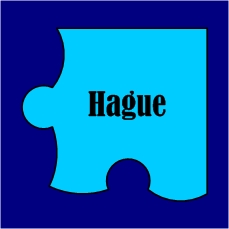Korea joins Hague child adoption pact UPDATED

“South Korea has become the latest country to join the Hague Convention on inter-country adoption.
Korea’s Health Minister Jin Young signed the deal that aims to protect children, birth parents and adoptive parents while endorsing the concept of international adoption as a means for children without families to find one.
It also handles other youth-related issues such as child trafficking.
Korea plans to reorganize the domestic adoption system so that it meets the standards required by the convention.
The convention went into effect in 1995 and has been ratified by 90 countries including Germany and China.”
Korea Joins Hague Child Adoption Pact
[Arirang 5/25/13 ]
When will DOS issue a notice?
Special Adoption Act August 2012
We learned of the August 2012 Special Adoption Act in October 2012 and included it in this post here.
That post also has one of the most important quotes on child laundering that ever has been made about Korea adoptions. It bears repeating and this refers to the one agency operating at the time…HOLT : “Adoption agencies argue they had no other way but to fabricate facts and circumstances about the children they sought to place in order to provide them with new homes, because in many cases the children were living in orphanages and the agencies could not meet the biological parents to obtain consent.”
Additionally it is important to note that the estimate is 100,000 Korean adoptees “voluntarily returned or were deported to South Korea while living without nationality.”
DOS in January 2013 finally got around to posting a notice about the August 2012 ruling:
See it here and it is pasted below:
“Notice: Korea Begins Implementing Special Adoption Act
On August 5, 2012, the Republic of Korea (ROK) Special Adoption Act, which governs intercountry adoptions from South Korea, went into effect. This law prioritizes domestic adoptions and endeavors to reduce the number of South Korean children adopted abroad. Under the Special Adoption Act, each intercountry adoption requires the approval of the ROK Family Court. We anticipate other significant changes from previous intercountry adoption procedures and requirements. The ROK government has not yet given public notice of the details at this time.
The ROK’s Ministry of Health and Welfare recently informed the U.S. Embassy in Seoul that adoptions that were in process but not completed by August 5, 2012 will be processed under the new law. Adoption agencies in Seoul have confirmed that the files of all children under last year’s quota who had not received Emigration Permits prior to the effective date of the new law are now being sent to the Family Court for approval once Emigration Permits are issued. Prospective adoptive parents who believe their case may fall under the new law should contact their adoption service provider for more information. The ROK is accepting new adoption applications; however, prospective adoptive parents should not expect rapid processing of these cases until the ROK’s new procedures are in place.”
Susan Jacobs’ Visit in October 2012
Susan Jacobs visited Korea about Hague ten days after Korean media talked about the Special Adoption Act. We covered that in this post here.
REFORM Puzzle Piece
 I would love to hear from PAPs who have had Korea recently marketed to them to see if agencies even mentioned this possibility and the delays that this will cause as they implement it. How much money was collected from PAPs in these past 7 months?
I would love to hear from PAPs who have had Korea recently marketed to them to see if agencies even mentioned this possibility and the delays that this will cause as they implement it. How much money was collected from PAPs in these past 7 months?
Update: ![]() DOS issues a notice just a few days later on May 28, 2013. See here and pasted below:
DOS issues a notice just a few days later on May 28, 2013. See here and pasted below:
“Adoption Notice: The Republic of Korea Signs the Hague Adoption Convention
On May 24, 2013, the Republic of Korea (South Korea) signed the Convention on Protection of Children and Co-operation in Respect of Intercountry Adoption (the Convention). This is the first step for South Korea in becoming a Convention partner. Adoptions between the United States and South Korea, however, are not yet subject to the requirements of the Convention and relevant implementing laws and regulations. According to the Ministry of Health and Welfare, which will be designated as South Korea’s Central Authority, there is no set date when South Korea will deliver its instrument of ratification or when the Convention will enter into force with respect to South Korea. We will continue to keep you informed through adoption.state.gov as we receive additional updates.”

Recent Comments